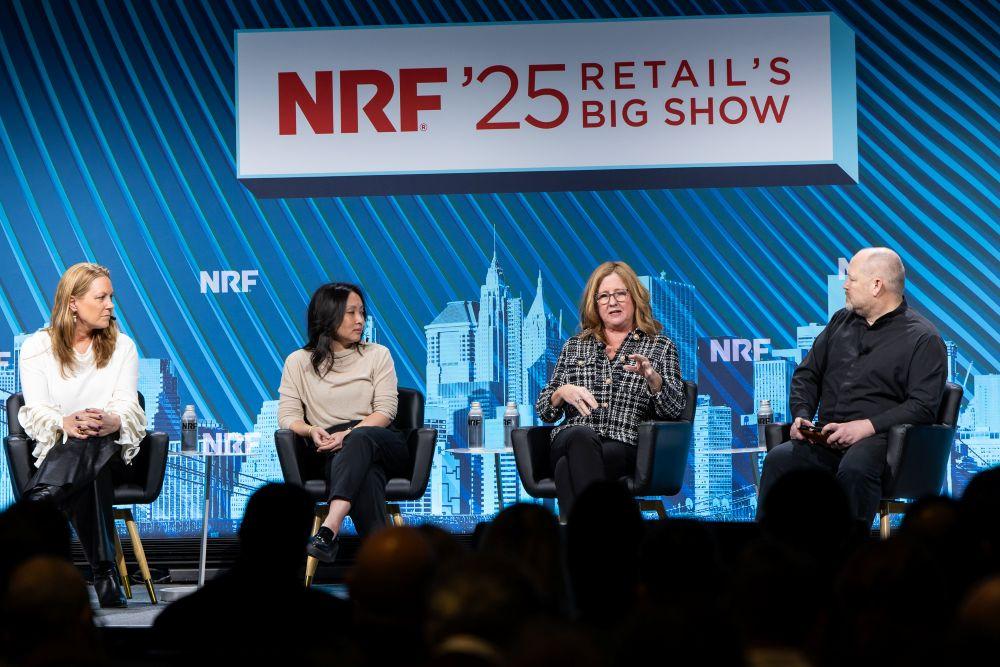
H&M's Ellen Svanström, Tapestry's Trang To, Qurate Retail Group's Karen Etzkorn and Forrester Research's Brendan Witcher speak at a panel at NRF 2025: Retail's Big Show.
In the midst of all things generative AI, a session at NRF 2025: Retail’s Big Show took things in another direction: forward. Forrester Research’s Brendan Witcher helmed the panel discussion that explored biometrics, computer vision and ambient intelligence, as well as ways GenAI is being combined with other technologies for efforts like hyper-personalization. He was joined by Karen Etzkorn, chief information officer for Qurate Retail Group; Trang To, vice president of omni at Tapestry; and Ellen Svanström, chief digital information officer with H&M.
View the recap for photos, video clips and more event coverage from NRF 2025.
Etzkorn dove in with her company’s recently announced growth strategy, a move to intensity its efforts in social, streaming and digital commerce. The “game-changing opportunity” is to use artificial intelligence to leverage live content for the creation of smaller snippets that can then sell product through social channels. The level of traction a host receives while on air is already apparent, she said; AI can help analyze that data in a much more efficient and useful way.
Tapestry’s To sees untapped opportunity in being able to leverage the same level of analytical rigor in the company’s stores as it can on its sites. “On our sites, I know what the consumer is clicking on, how much time she’s spending, her experience through checkout,” she said. “I have all of that information in the stores. But I’m not harnessing it in the same way.”
One of the most interesting things emerging, then, is computer vision, a type of AI that allows computers to analyze and understand visual content much in the way that a human would. The adoption of computer vision, To said, can provide information that “has the power to transform how we think about store design, merchandising, store associate training and even labor productivity.”
Svanström noted that H&M invested early in artificial intelligence and is now in its second wave of the journey, based on its learnings. She touched on connecting physical assets with digital through tools like ambient intelligence. Low-cost sensor technology — such as “good old RFID technology” — can be coupled with other connected products and amplified through AI to provide insights and data to colleagues. H&M is exploring sensor technology in a New York City store, helping associates not only better locate garments, but also make recommendations to help the sale. “We’re just scratching the surface,” Svanström said.
She also talked about the need for partnerships. With the pace of change, it’s important to be collaborative and to stay tapped into innovation to remain at the forefront. Investments in the data foundation and data platform will allow the company to be more flexible and agile.
Witcher also asked the panelists about natural language processing: Hot or hype? The group was divided.
For Qurate Retail Group, it will be critical in being able to connect with consumers, Etzkorn said. To, on the other hand, was “not so hot.” Natural language processing puts the onus on the customer to provide information, she said. “I think a lot of what hyper-personalization looks like is actually initiating the ‘unsaid’ things the consumer is saying.”